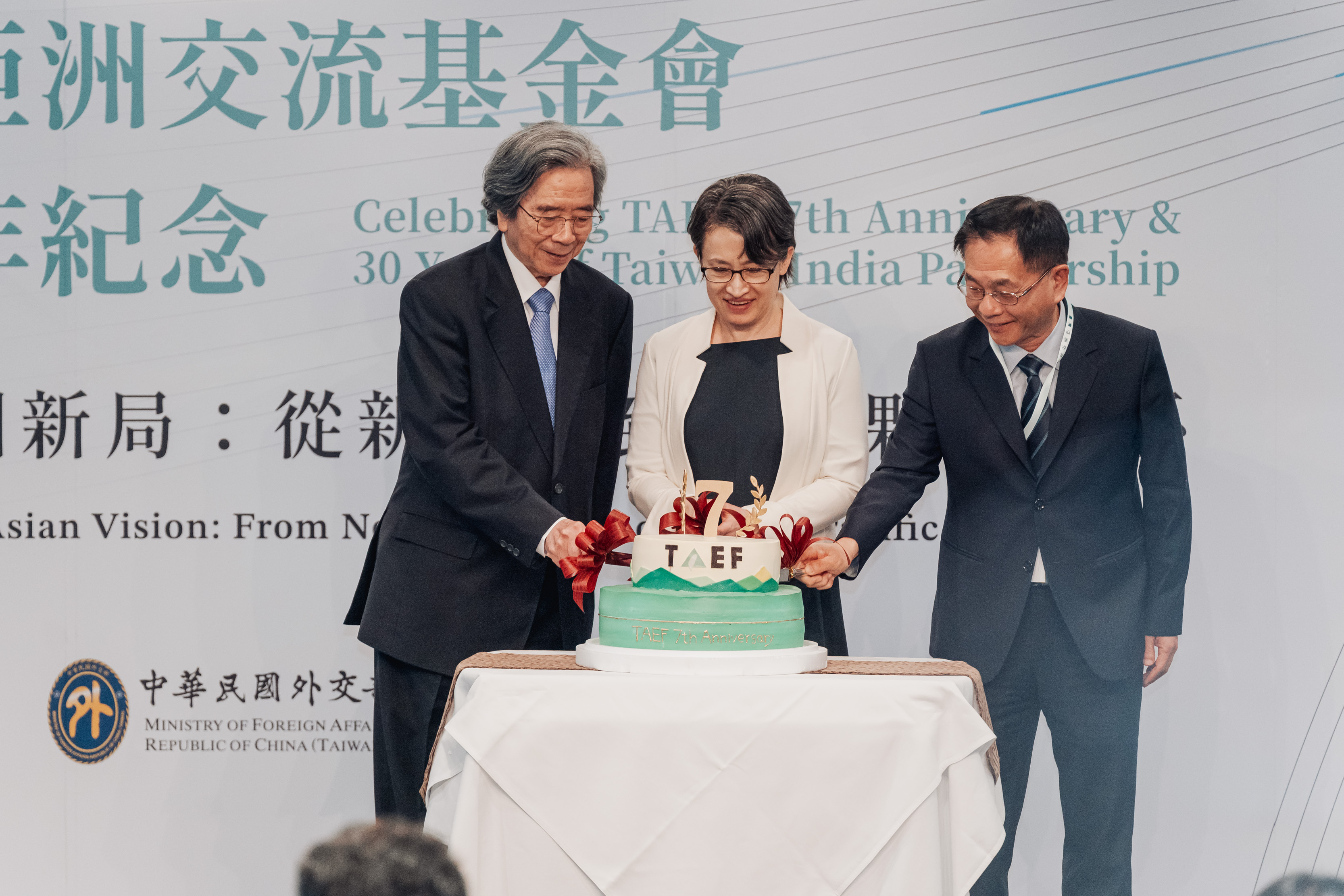To celebrate the 7th anniversary of the Taiwan-Asia Exchange Foundation (TAEF) and the 30th anniversary of the establishment of official representative offices between Taiwan and India, TAEF hosted the forum “Building a New Asian Vision: From New Southbound Policy to Indo-Pacific Partnerships” today (August 8) at the Shangri-La Far Eastern, Taipei.
The event drew strong interest and enthusiastic participation from political, academic, and business communities at home and abroad. Over a hundred distinguished guests gathered, including resident diplomats, members of parliament, representatives from international think tanks, and key partners from across Asia. The opening ceremony featured remarks from Dr. Hsin-Huang Michael Hsiao, TAEF Chairman; Vice President Hsiao Bi-khim; and Ambassador Baushuan Ger, Vice Minister of the Ministry of Foreign Affairs (MOFA), underscoring the government’s high recognition of TAEF’s achievements in advancing Indo-Pacific regional cooperation.
I. Opening Remarks and 7th Anniversary Celebration
Chairman Michael Hsiao stated that since its establishment in 2018, the Taiwan-Asia Exchange Foundation (TAEF) has actively served as a “New Southbound Policy think tank,” advancing inter-ministerial cooperation and deepening partnerships with New Southbound countries through its five core action programs. This year’s forum not only focuses on “Linking the New Southbound Policy Plus with the Indo-Pacific Strategy,” but also collaborates with India’s Observer Research Foundation (ORF) to review the achievements of 30 years of reciprocal representative offices between Taiwan and India and to release a joint policy report. He noted that in the face of an ever-changing global landscape, Taiwan should deepen New Southbound cooperation, strengthen itself through the “New Southbound Policy+ (NSP+),” and play a more inclusive and strategically advantageous role in the core of the Indo-Pacific, responding to the Indo-Pacific strategies of the international community. Chairman Hsiao outlined three key aspirations: first, Taiwan must firmly commit to strengthening its security resilience and economic prosperity; second, it should continue and actively embody the spirit of “Taiwan Can Help, Taiwan Is Always Helping”; and third, it must be an indispensable and trustworthy member of the international community, fulfilling its commitments to global cooperation. He added that TAEF will use these three aspirations to drive more people-to-people exchanges, including expanding the Youth Leaders Camp, hosting the first Indo-Pacific Think Tank Summit on October 8, and moving forward in two directions — “expansion” and “deepening” — to ensure that more “Taiwan stories” are heard and seen worldwide, reaffirming that Taiwan is is a solution for promoting peace, prosperity, and stability in the Indo-Pacific.
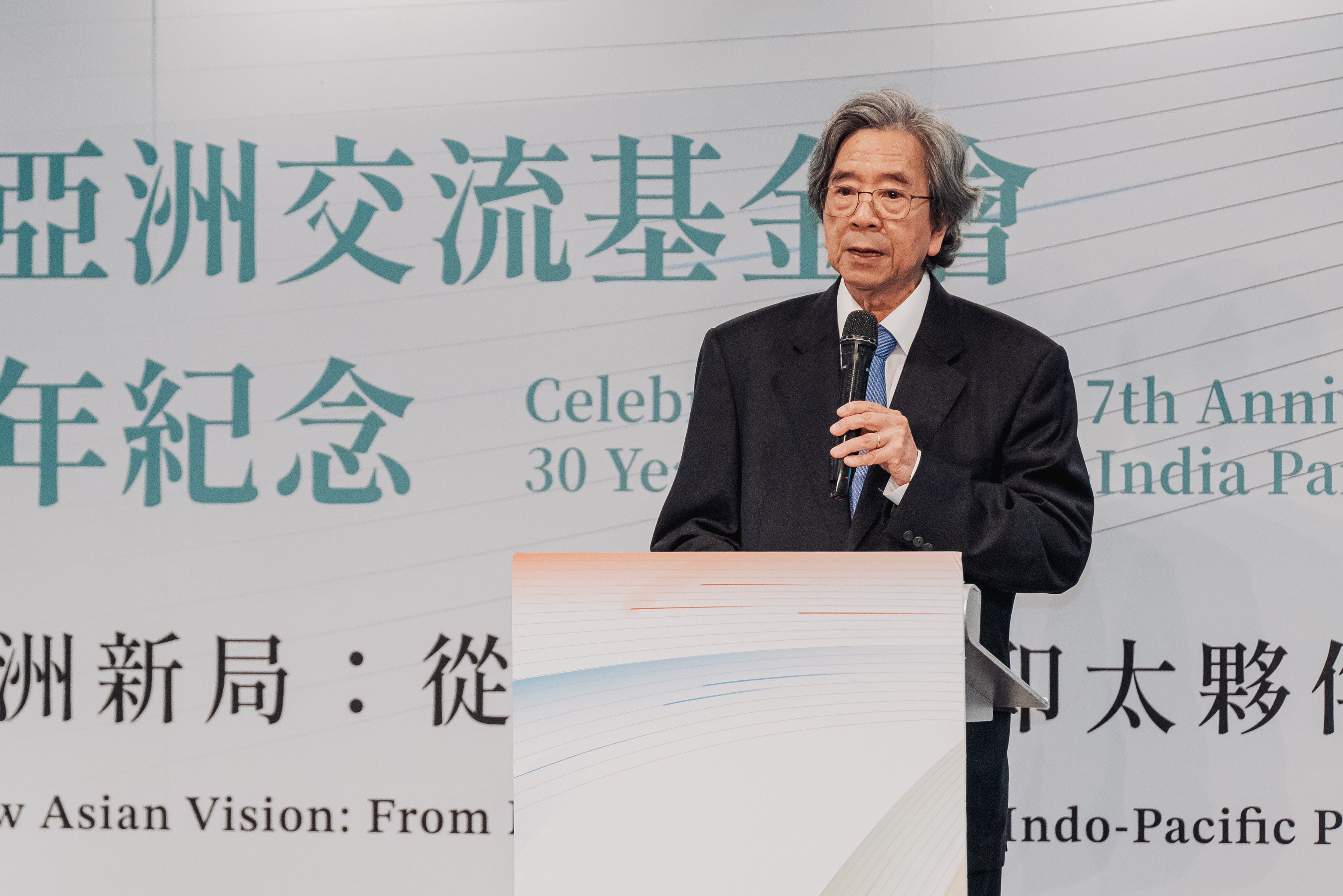
Ambassador Baushuan Ger expressed that he was honored to attend the TAEF’s 7th anniversary celebration and conveyed the MOFA Foreign Minister’s congratulations. He recalled participating in the foundation’s 2018 inauguration as Director-General of the Department of East Asian and Pacific Affairs, noting his “deep connection with the foundation” and pride in its achievements. He commended TAEF’s role in advancing the New Southbound Policy through five core programs in areas such as disaster preparedness, youth empowerment, and civil society engagement, enhancing Taiwan’s visibility and people-to-people ties. He highlighted this year’s Yushan Forum in March, co-hosted with MOFA, as a platform to showcase President Lai Ching-te’s commitment to the New Southbound Policy Plus. Marking 30 years of Taiwan-India representative offices, he cited semiconductor cooperation as proof of the complementarity between Taiwan’s New Southbound Policy and India’s Act East Policy, and expressed hope for deeper, more strategic partnerships ahead
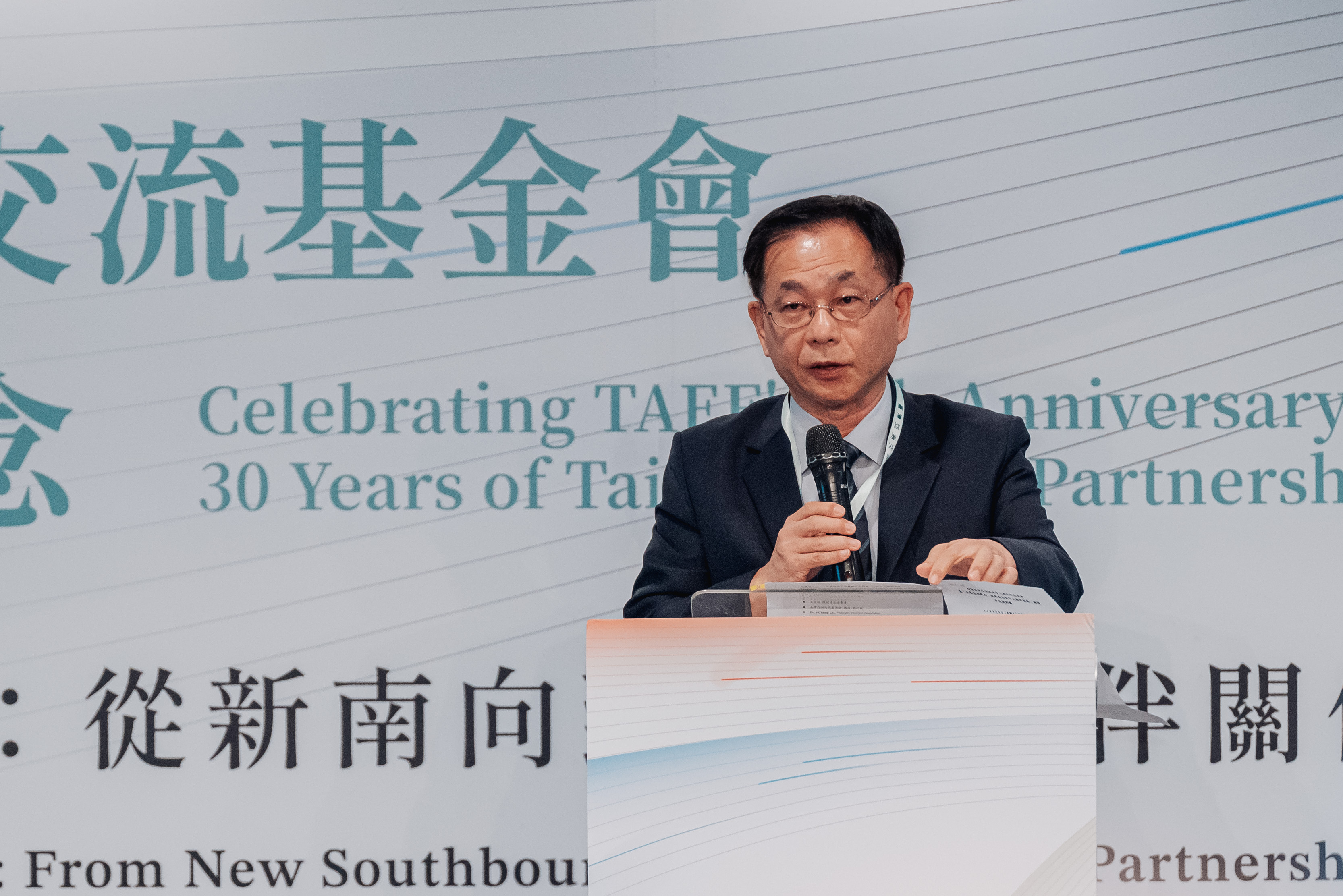
Vice President Hsiao Bi-khim thanked TAEF and its partners for their long-standing efforts in the Indo-Pacific, noting that “your efforts have allowed the world to see Taiwan and have made Taiwan a trusted partner in the region.” Since its establishment in 2018 under the Ministry of Foreign Affairs’ guidance, she said, TAEF has advanced two key missions: boosting the New Southbound Policy’s international visibility through the Yushan Forum and deepening people-centered exchanges in areas such as disaster preparedness, youth empowerment, think tank cooperation, and cultural exchange. She emphasized that the policy is about building deep human connections, not just trade, and reiterated the chairman’s three aspirations while embodying “Taiwan Can Help.” On global trade, she noted that recent U.S. tariffs have spurred supply chain restructuring, creating both challenges and new opportunities for cooperation with New Southbound partners. In this era of de-risking, Taiwan’s transparent governance, industrial strengths, and democratic values position it to build resilience and shared values—core to the New Southbound Policy Plus. She also congratulated Taiwan and India on 30 years of reciprocal representative offices and expressed hope for deeper, mutually beneficial ties.
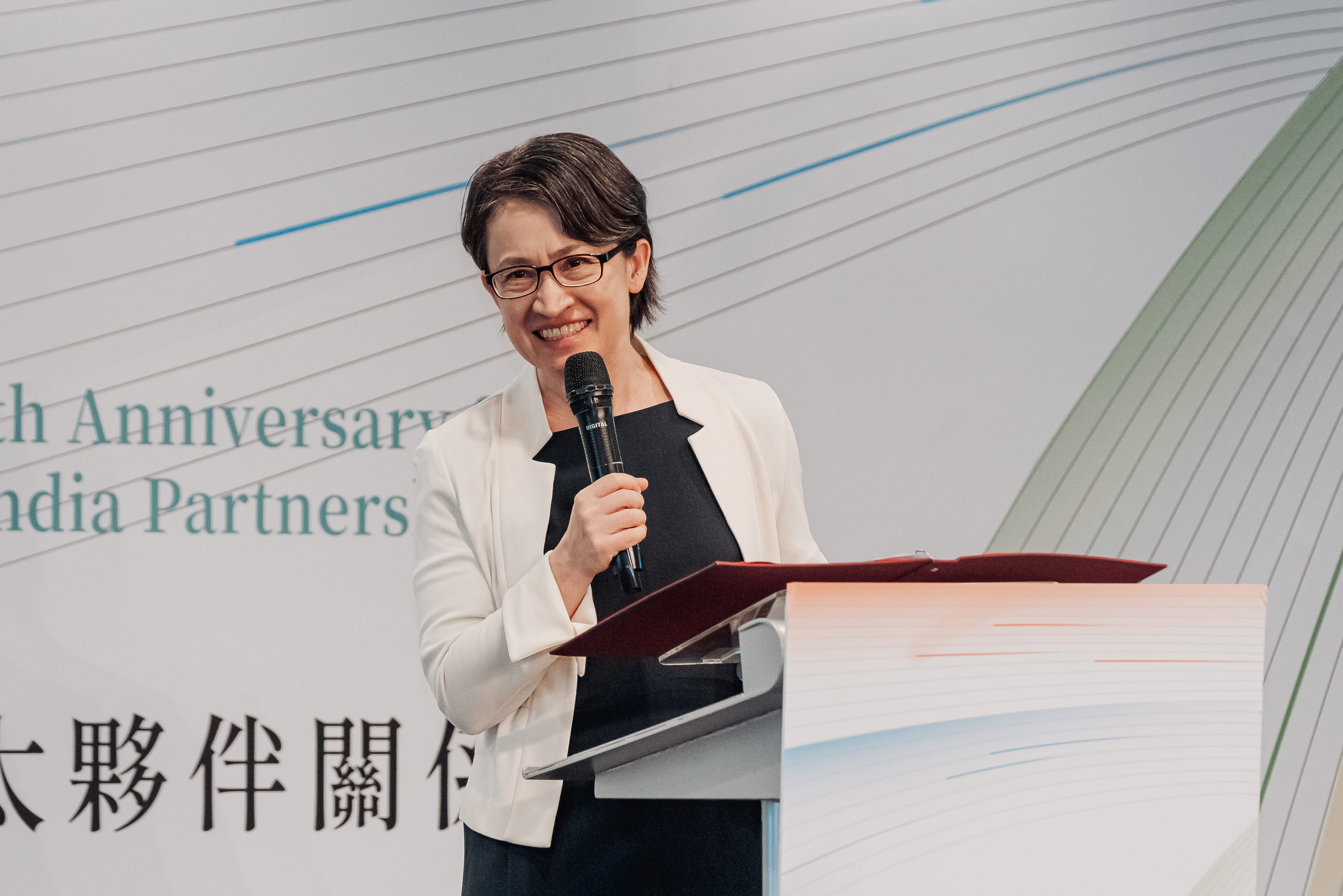
Following the remarks, a special cake-cutting ceremony was held to mark TAEF’s 7th anniversary. Chairman Hsiao, Vice President Hsiao, and Vice Minister Ger shared the stage to commemorate this milestone, symbolizing both TAEF’s achievements over the past seven years and the shared aspiration across sectors to strengthen partnerships in Asia.
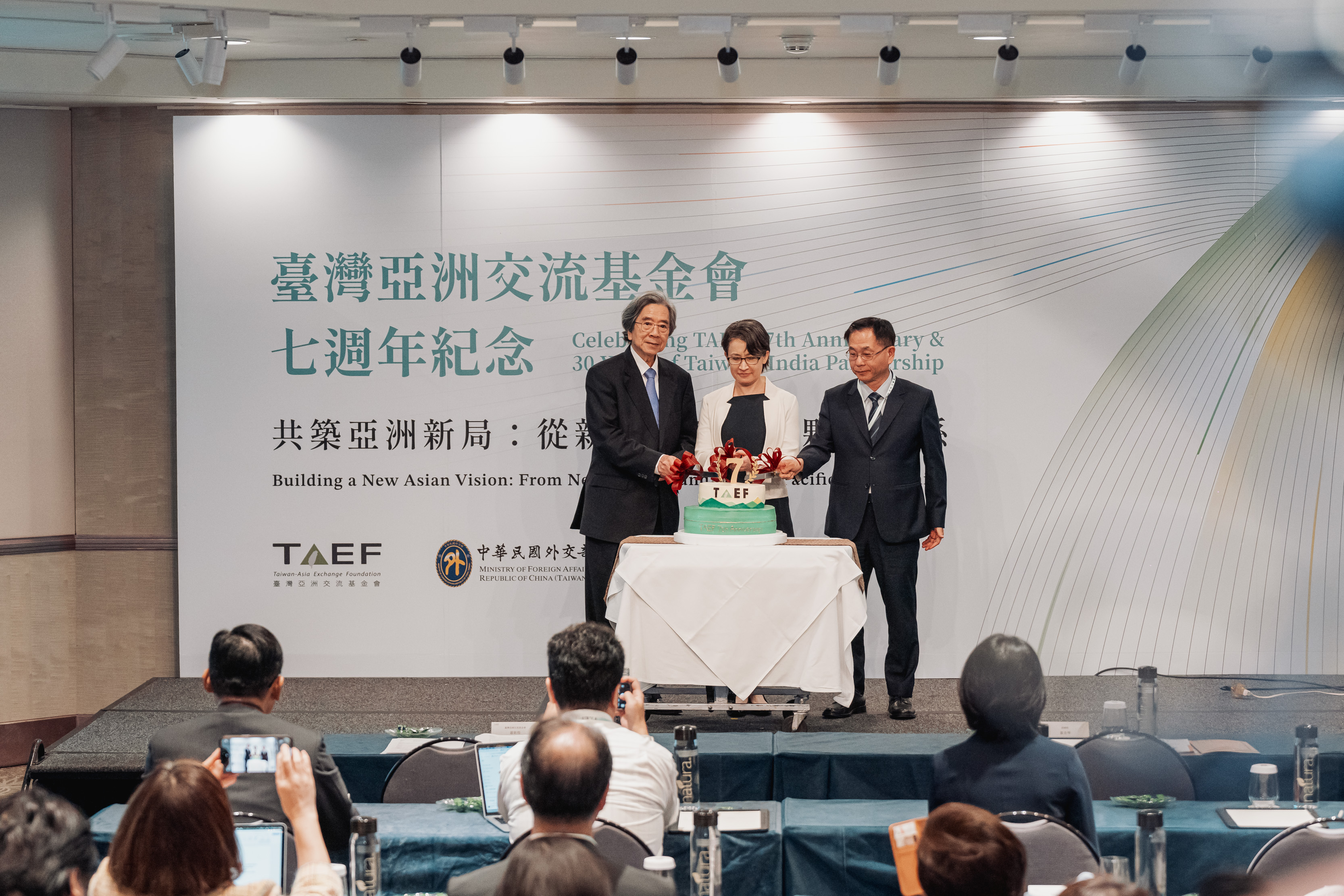
II. “Building a New Asian Vision” Forum: Indo-Pacific Strategic Transformation and Taiwan–India Cooperation
The forum comprised two thematic dialogues focusing on Taiwan’s role in the evolving Indo-Pacific strategy and the deepening of Taiwan–India bilateral cooperation.
The first session, “Taiwan’s New Southbound Policy and Indo-Pacific Strategy: Seven-Year Review and Future Outlook”, was moderated by Chairman Hsiao and featured Dr. I-Chung Lai, President of the Cross-Strait Interflow Prospect Foundation, who provided a geopolitical analysis of policy transformation and Taiwan’s opportunities in multilateral frameworks; Mr. Lin Fei-fan, Deputy Secretary-General of the National Security Council, who discussed the integration of the New Southbound Policy+ with Taiwan’s national Indo-Pacific strategy, particularly in extending cooperation on security and democracy; Mr. Chen Kuan-ting, Legislator and Member of the Foreign and National Defense Committee, who highlighted the role of the Legislative Yuan in advancing regional diplomacy and supporting democratic values through legal frameworks; and Dr. Alan H. Yang, TAEF Executive Director, who shared TAEF’s practical achievements over the past seven years and outlined the role of Taiwanese think tanks as strategic nodes within the Indo-Pacific network.
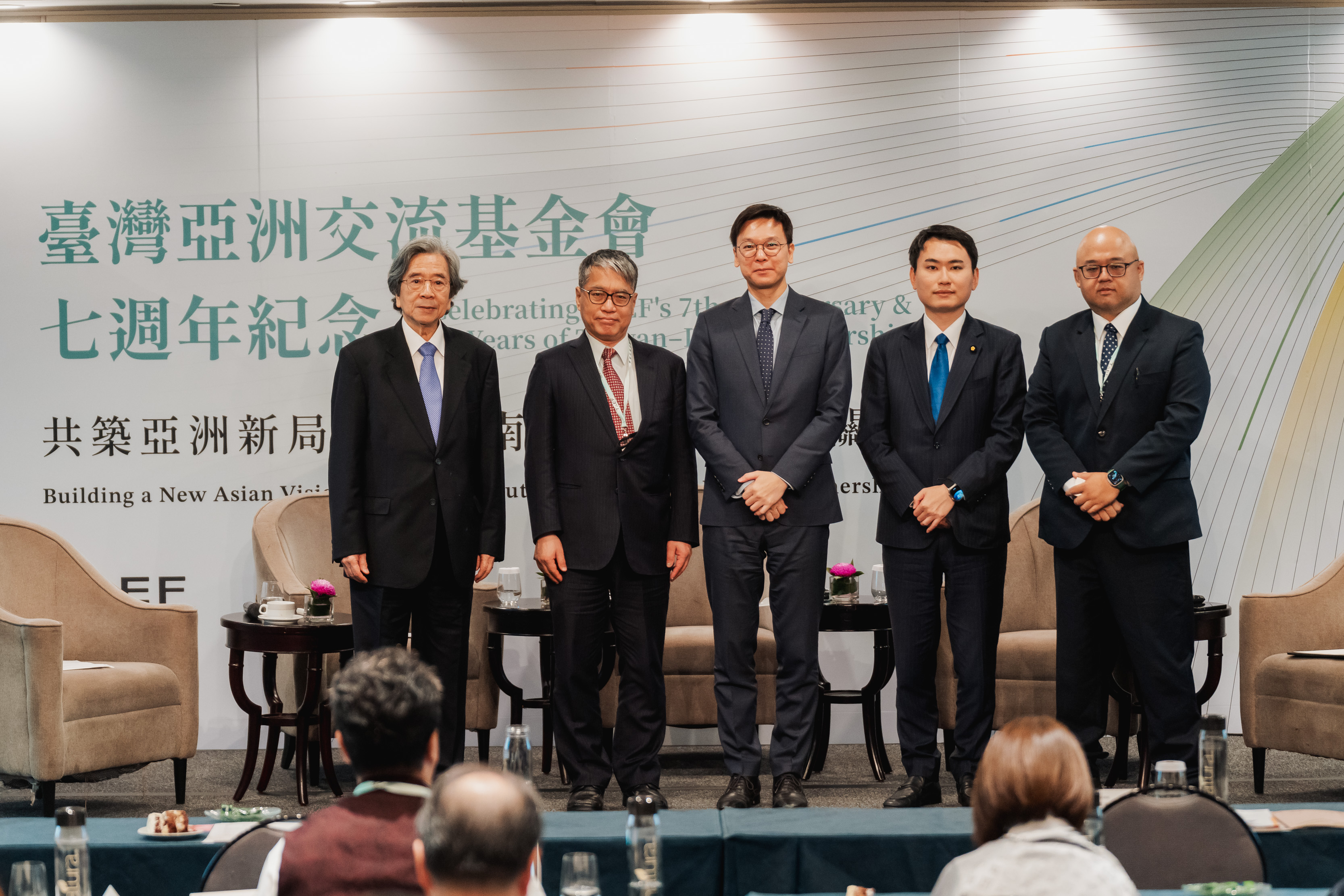
The second session, “Thirty Years of Taiwan–India Partnership: Resilience and Prosperity”, marked the launch of the joint TAEF–Observer Research Foundation (ORF) report Taiwan–India @30: Charting a New Arc of Cooperation. Ms. Aparna Ganesan, Deputy Director General of the India Taipei Association, delivered remarks on the current state of bilateral relations and prospects for cooperation in technology and talent exchange. Prof. Harsh V. Pant, ORF Vice President, shared pre-recorded remarks offering insights and expectations for Taiwan–India cooperation. The report presentation, moderated by Dr. Alan H. Yang, included Dr. Sana Hashmi, TAEF Postdoctoral Fellow, who discussed TAEF’s collaborative work in India and related policy recommendations; Mr. Nikhil Kale, Vice President of Micron Technology, who spoke on emerging AI collaboration opportunities and success stories; and Dr. Roger Chifeng Liu, Assistant Professor at National Sun Yat-sen University, who explored shared interests and strategic potential in the Taiwan–India relationship amid current geopolitical shifts.
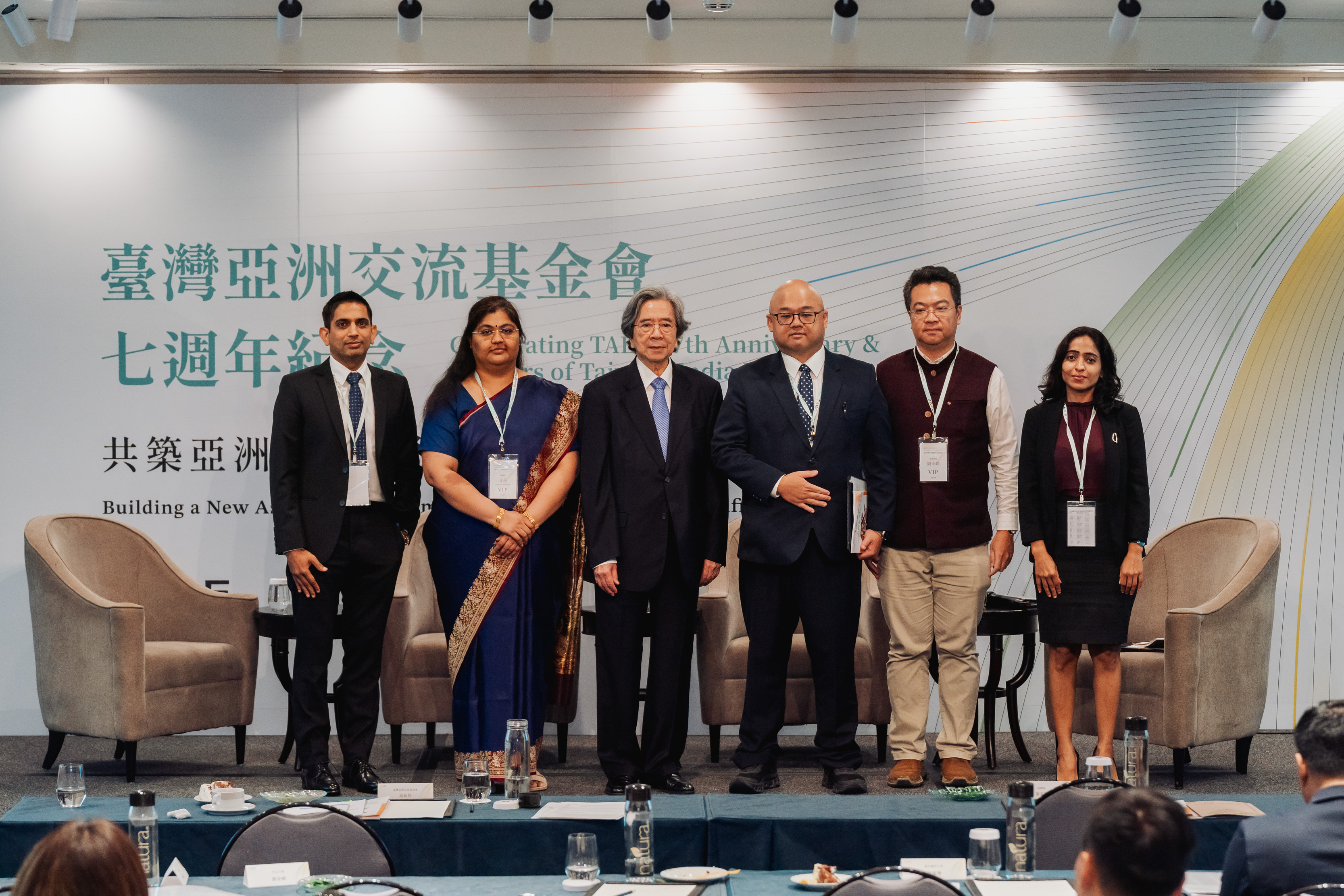
III. Taiwan–India @30 Report: A New Vision for Bilateral Cooperation
Jointly edited by TAEF and ORF, the Taiwan–India @30 report brings together leading scholars and policy practitioners from both sides to analyze three decades of bilateral engagement. Covering high-tech supply chain integration, digital and green transformation, education and youth exchange, think tank cooperation, and civil society dialogue, the report not only reviews past achievements but also proposes concrete policy recommendations and action plans. It outlines a vision for building a resilient, secure, and prosperous strategic partnership in the face of global transformations. Full report available here: https://www.taef.org/event/141...
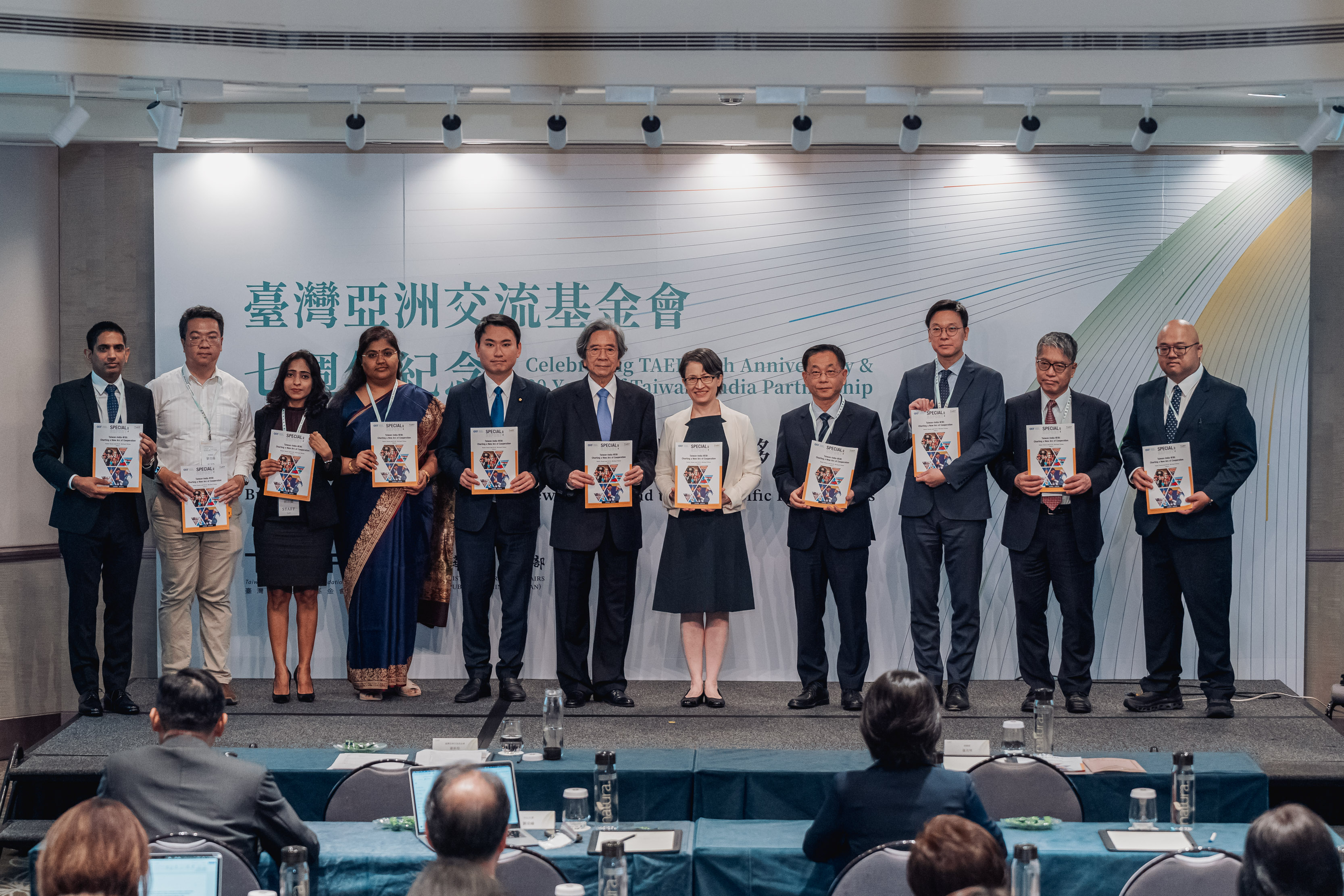
The event also featured a cross-cultural musical performance by violinist Catherine Yang and sitarist Uz AZeR, adding a humanistic touch to the day’s discussions. Born in 2016—the same year the New Southbound Policy was launched—Catherine, now only eight years old, has already won numerous awards in national music competitions. Uz AZeR, meanwhile, founded the music group Siyu Island, which centers on the sitar and blends traditional Kavalan music from Taiwan with elements of world music to create a unique and diverse sound.
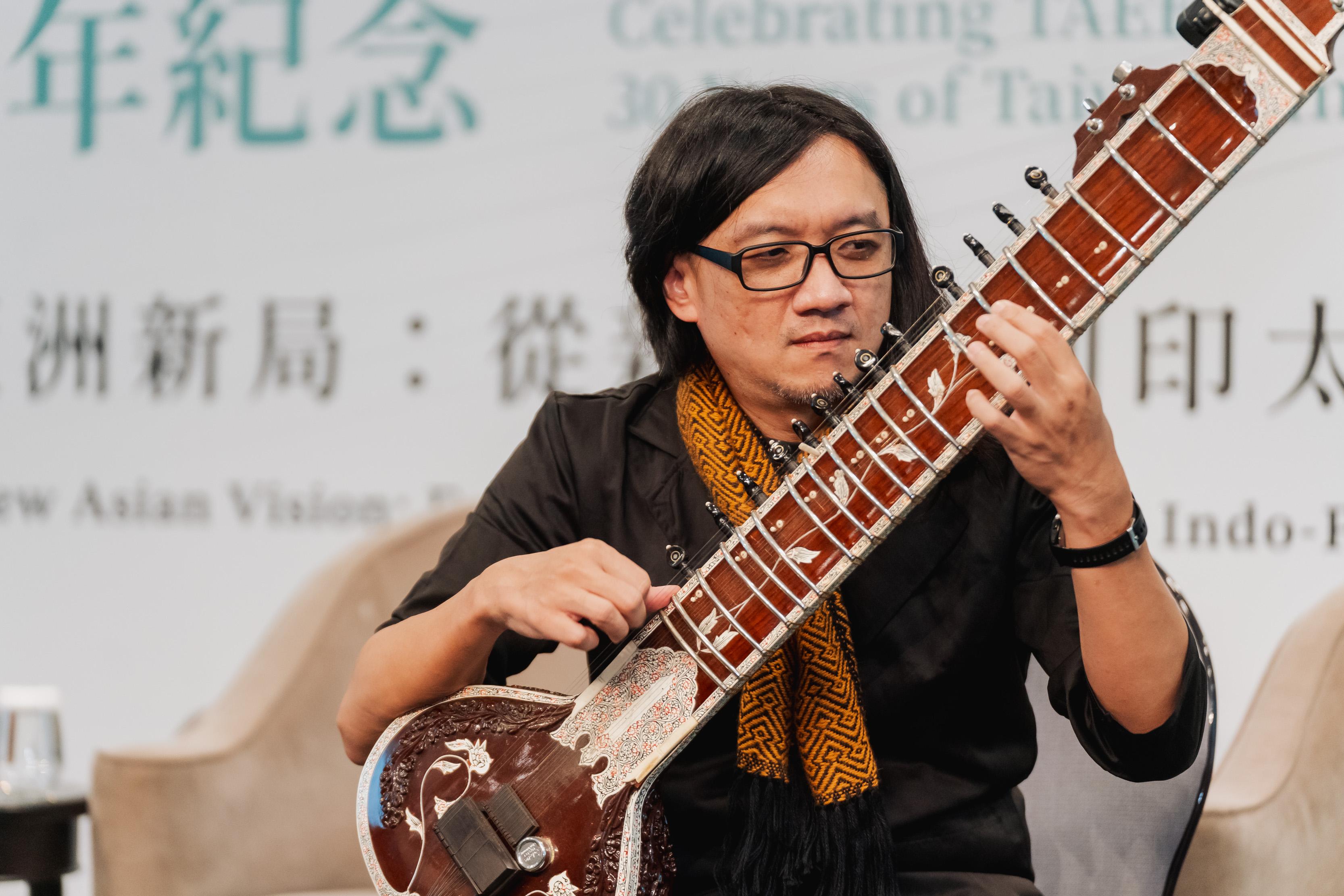
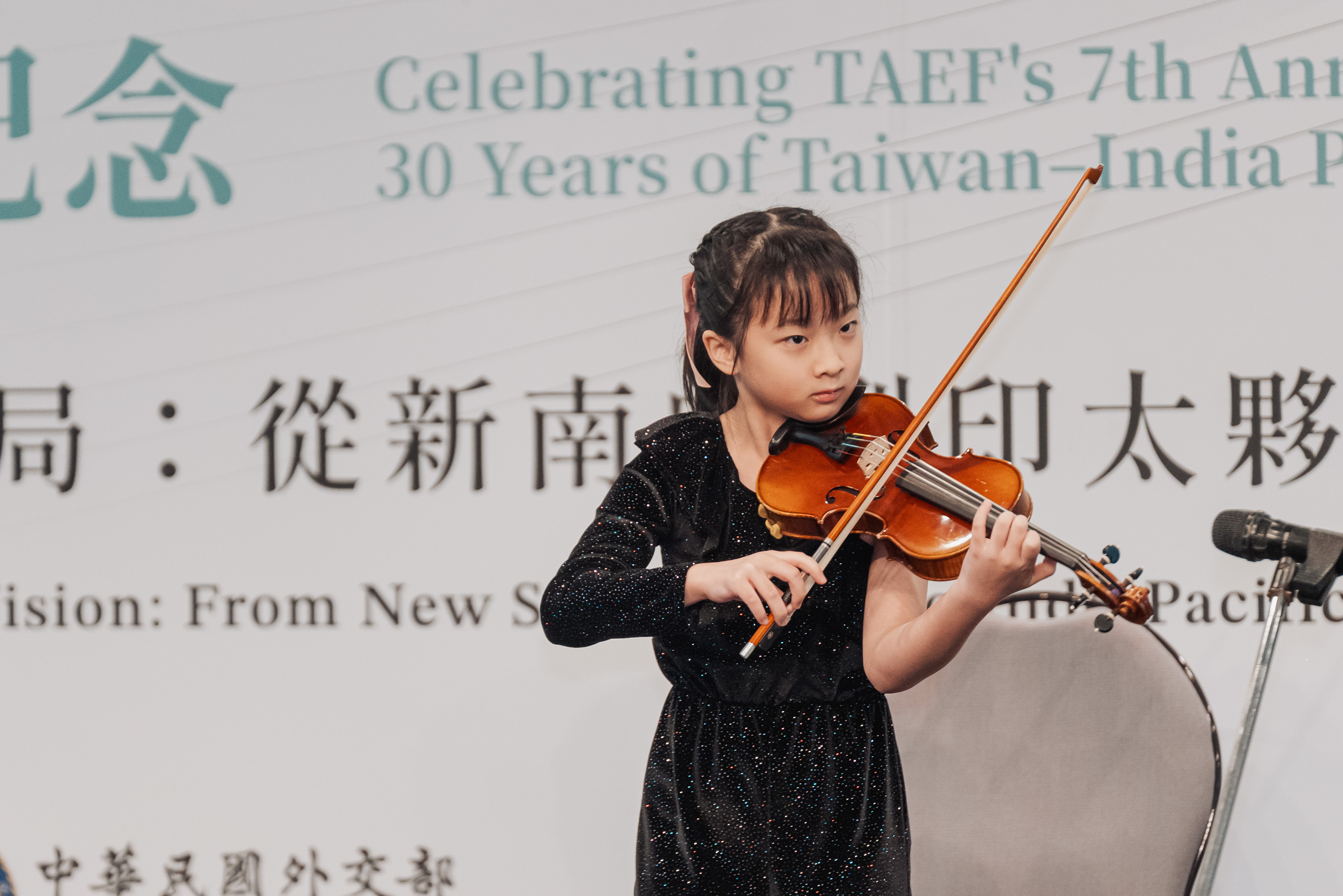
About TAEF
Since its founding in 2018, the Taiwan-Asia Exchange Foundation has upheld a “people-centered” mission, actively deepening engagement with Southeast and South Asia through the New Southbound Policy+. Through its five flagship initiatives—think tank collaboration, youth empowerment, civil society connectivity, regional resilience promotion, and cultural diplomacy—TAEF builds comprehensive partnerships between Taiwan and Asian nations. Its signature annual event, the Yushan Forum, has become a premier platform for policy and innovation dialogue in Asia, underscoring Taiwan’s growing role in regional and global affairs. Looking ahead, TAEF will continue to expand Taiwan’s international visibility and participation through major initiatives such as the upcoming October Think Tank Summit, and, in the coming years, the planned NGO Assembly and Asian Youth Leaders Summit.
